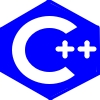Future
The Future of C++: 10, 100, and 1000 Years Ahead
The Next 10 Years: Evolution and Adaptation
In the short term, C++ will continue evolving with regular standard updates every three years. The upcoming C++26 and C++29 are expected to refine the language further, focusing on:
- Better safety features: Improvements in memory safety, possibly integrating Rust-like borrow checking mechanisms.
- Enhanced concurrency: More efficient multi-threading and parallelism to utilize modern hardware architectures.
- Improved modularity: Widespread adoption of C++ modules for better compilation speeds and cleaner codebases.
- Integration with AI and ML: Libraries and language features that optimize C++ for artificial intelligence and machine learning applications.
- More functional programming features: Expanding features like coroutines and concepts to support functional programming paradigms.
C++ will likely remain a dominant language for performance-critical applications, particularly in gaming, embedded systems, and high-performance computing.
The Next 100 Years: The Role of C++ in a Post-Classical Computing Era
As computing paradigms shift, C++ will need to adapt to entirely new architectures. Some potential transformations include:
- Quantum Computing: C++ may evolve to support quantum programming models, integrating libraries and language features to work alongside quantum processors.
- AI-Driven Development: AI-assisted coding tools may redefine how developers interact with C++, making manual memory management obsolete through automated optimization techniques.
- Post-Silicon Computing: As new materials replace traditional silicon, C++ will likely adapt to leverage hardware advances in ways that maintain its performance edge.
- Universal Compilation: Future compilers might optimize C++ code in real-time across different computing paradigms, ensuring seamless execution on both classical and quantum systems.
- Self-Optimizing Code: C++ programs may become self-modifying and self-optimizing, using AI to rewrite parts of their own source code to maintain efficiency.
The Next 1000 Years: The Legacy of C++ in a Post-Human World
Predicting the state of technology 1000 years into the future is speculative, but here are some possibilities for C++'s long-term role:
- Intergalactic Computing: If humanity colonizes other planets, C++ could be a core language for interstellar software, ensuring robust and efficient computing across vast distances.
- Biological Integration: C++ may evolve to interact with biological computing systems, enabling programming interfaces that communicate directly with synthetic or enhanced human cognition.
- Post-Human AI Systems: Advanced AI might continue to use C++ as a foundational language for self-replicating and self-evolving software.
- Timeless Digital Preservation: C++ could become part of a universal computing standard, ensuring that knowledge and legacy software remain readable and executable for thousands of years.
- Virtual Reality as Reality: If humanity transitions to a fully simulated or virtual existence, C++ (or a descendant language) could be the foundation for simulated universes and AI-driven reality models.
Conclusion
C++ has continuously adapted over the past 40+ years, and there is no reason to believe it won’t continue evolving for the next millennium. Whether through performance optimizations, new computing paradigms, or AI-driven development, C++ is poised to remain one of the most influential languages far into the future. While it may not exist in its current form in 1000 years, its principles of efficiency, flexibility, and control over hardware will likely shape the foundation of future computing.
